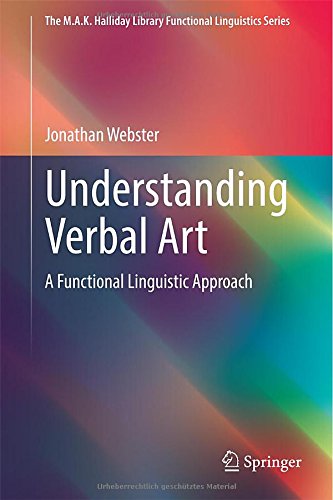

Most ebook files are in PDF format, so you can easily read them using various software such as Foxit Reader or directly on the Google Chrome browser.
Some ebook files are released by publishers in other formats such as .awz, .mobi, .epub, .fb2, etc. You may need to install specific software to read these formats on mobile/PC, such as Calibre.
Please read the tutorial at this link: https://ebookbell.com/faq
We offer FREE conversion to the popular formats you request; however, this may take some time. Therefore, right after payment, please email us, and we will try to provide the service as quickly as possible.
For some exceptional file formats or broken links (if any), please refrain from opening any disputes. Instead, email us first, and we will try to assist within a maximum of 6 hours.
EbookBell Team

4.7
56 reviewsThis book applies linguistic analysis to the poetry of Emeritus Professor Edwin Thumboo, a Singaporean poet and leading figure in Commonwealth literature. The work explores how the poet combines grammar and metaphor to make meaning, making the reader aware of the linguistic resources developed by Thumboo as the basis for his unique technique.
The author approaches the poems from a functional linguistic perspective, investigating the multiple layers of meaning and metaphor which go into producing these highly textured, grammatically intricate works of verbal art. The approach is based on Systematic Functional Theory, which assists with investigating how the poet uses language (grammar) to craft his text, in a playful way that reflects a love of the language. The multilingual and multicultural experiences of the poet are seen to have contributed to his uniquely creative use of language.
This work demonstrates how Systematic Functional Theory, with its emphasis on exploring the semogenic (meaning-making) power of language, provides the handle we need to better understand poetic works as intentional acts of meaning.
The verbal art of Edwin Thumboo illustrate Barthes' point that "Bits of code, formulae, rhythmic models, fragments of social languages, etc. pass into the text and are redistributed within it, for there is always language before and around the text."
With a focus on meaning, this functional analysis of poetry offers an insightful look at the linguistic basis of Edwin Thumboo's poetic technique. The work will appeal to scholars with an interest in linguistic analysis and poetry from the Commonwealth and new literatures, and it is also well suited to support courses on literary stylistics or text linguistics.